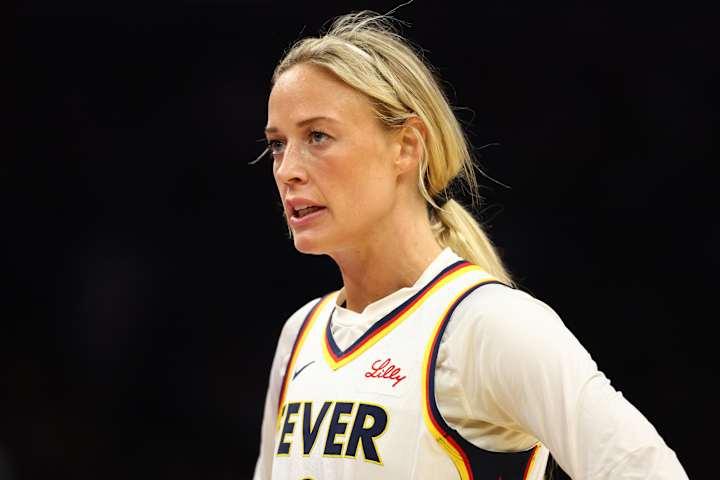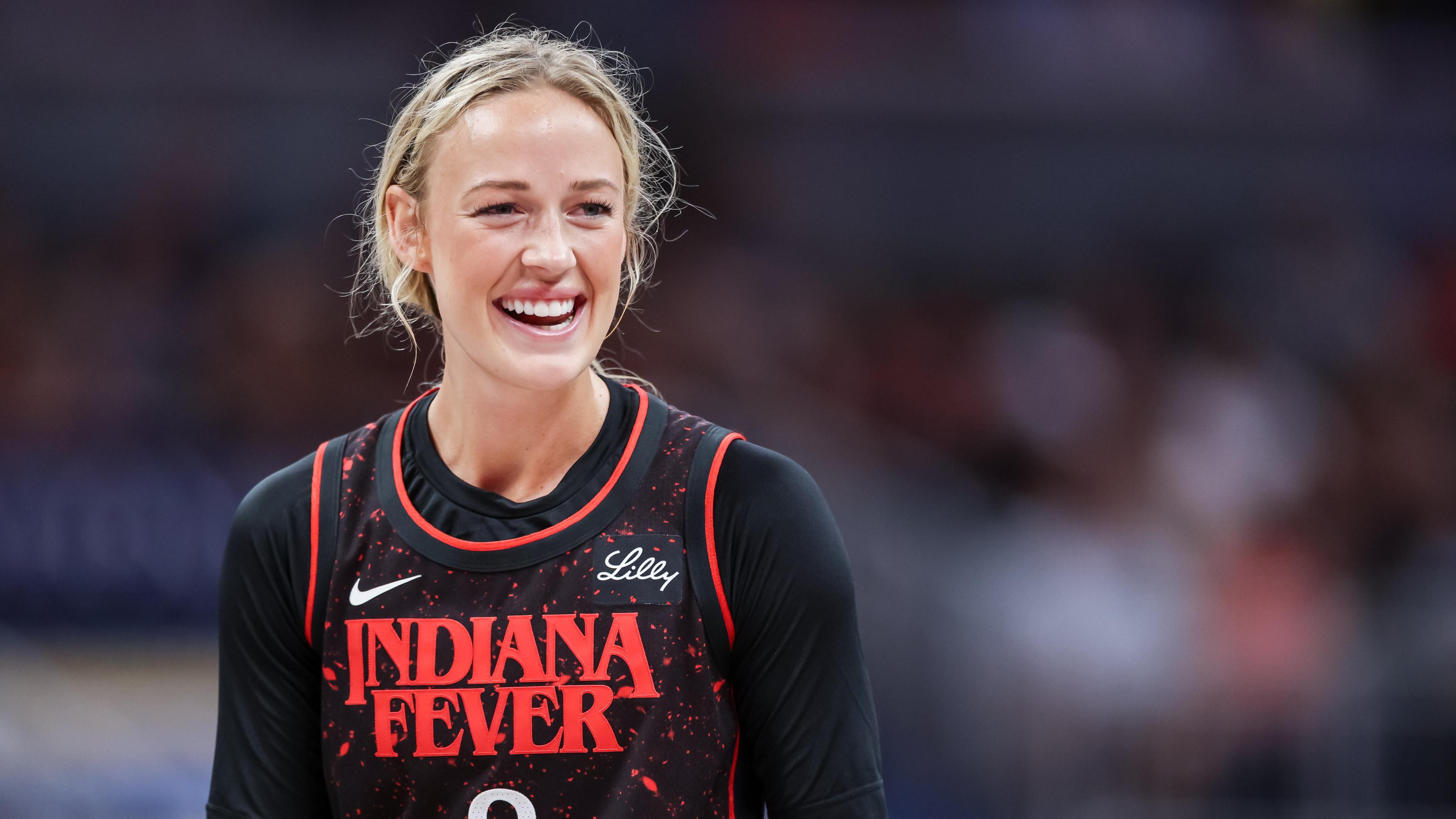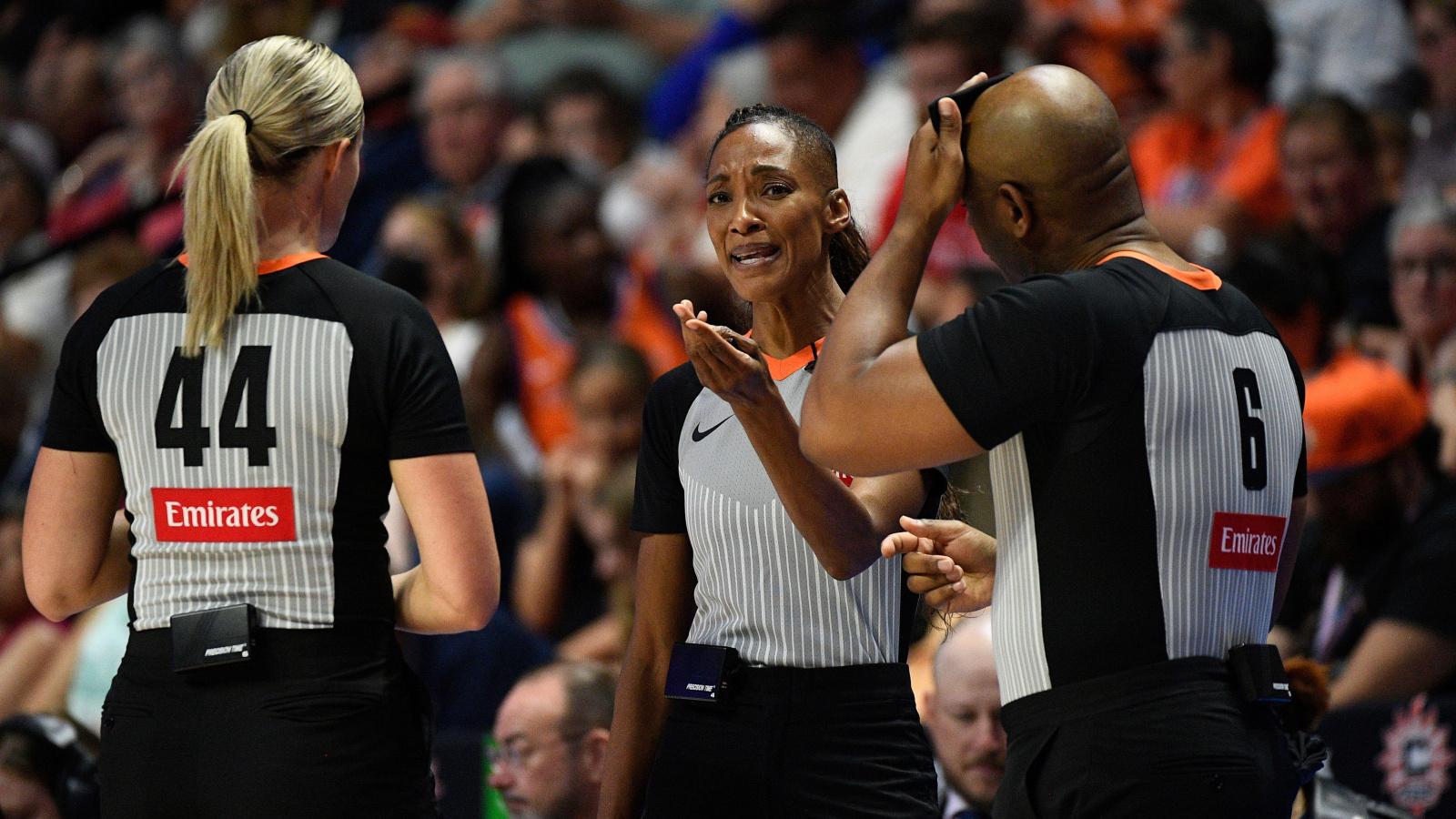Sophie Cunningham, a rising star in the WNBA, has captured the attention of the basketball world with a statement that is both simple and revolutionary: “You don’t own my voice.” These five words, delivered in the wake of her criticism of league officials, have ignited a movement that reaches far beyond one player or one season. Cunningham’s bold stance has placed her career at risk, exposing her to hefty fines, official warnings, and potential backlash from both the league and the public. Yet, her willingness to speak out underscores a growing demand for accountability, fairness, and empowerment within women’s professional basketball.
The controversy began when Cunningham publicly expressed her frustration with officiating decisions that she felt undermined the integrity of the game. Traditionally, players who voice concerns about referees or league policies are met with disciplinary action rather than dialogue. Cunningham’s decision to confront the system head-on challenged these unspoken rules, revealing a double standard in how the league enforces its policies. While her actions may have triggered fines, they also sparked a crucial debate about the balance of power between players and the governing bodies that oversee their careers.
Cunningham’s declaration has resonated with fans, fellow athletes, and commentators alike. Social media platforms exploded with support, with thousands rallying around her message of autonomy and courage. Many see her words as emblematic of a larger struggle, highlighting systemic issues in the WNBA such as inconsistent enforcement of rules, insufficient attention to player safety, and a culture that often prioritizes image over the well-being of athletes. For young players watching from the sidelines, Cunningham’s stand serves as a powerful example that raising one’s voice can be both necessary and transformative, even in the face of potential punishment.

The response from the league has been mixed. While some officials have defended their disciplinary measures, others acknowledge that Cunningham’s concerns warrant consideration. The dialogue her actions have generated extends beyond basketball, touching on broader issues of labor rights, workplace fairness, and individual agency in professional sports. Analysts suggest that this incident could set a precedent, encouraging athletes across leagues to speak out on matters that affect their careers, health, and dignity without fear of retaliation.

Cunningham herself has emphasized that her motivation is not personal or political but rooted in a desire to improve the sport she loves. By insisting that her voice cannot be owned or silenced, she challenges both her peers and the league to confront uncomfortable truths about power, representation, and respect. This stance has led to discussions among players, coaches, and administrators about how to create a more equitable environment where athletes feel empowered to provide feedback without fear of reprisal.
The ripple effects of Cunningham’s actions are already being felt. Media coverage, fan discussions, and internal league debates suggest that her statement could influence future policies on player communication, disciplinary procedures, and league transparency. While Cunningham risks her reputation and financial penalties, she has also elevated the conversation about what it means to be a professional athlete in a league that is still growing and evolving.

Ultimately, Sophie Cunningham’s five words have become a rallying cry. “You don’t own my voice” is not only a personal declaration of independence but a challenge to the entire WNBA to examine its culture, values, and approach to player empowerment. In standing up for herself and for the rights of her fellow athletes, Cunningham may well be shaping the future of women’s basketball, ensuring that the voices of players are heard, respected, and valued. Her courage demonstrates that change often begins with a single, uncompromising statement, and that sometimes, the most powerful movement starts with just five words.



